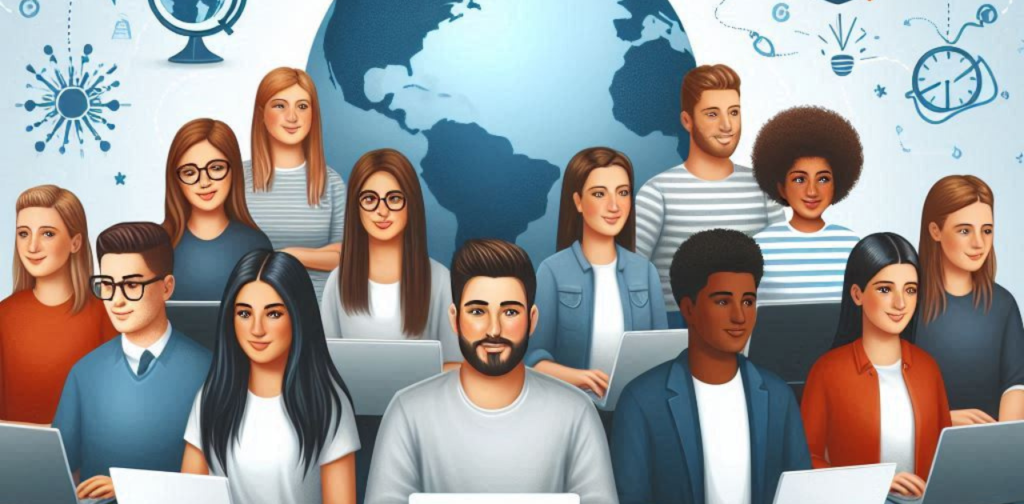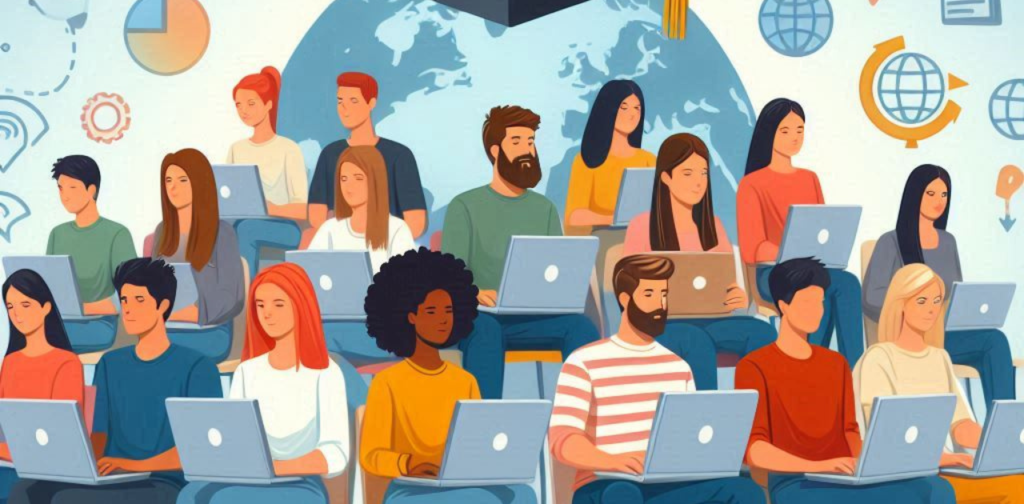Contents
MOOCs: Democratizing Education
Introduction
Massive Open Online Courses (MOOCs) are free online courses available to anyone with an Internet connection. They have revolutionized education by providing globally accessible and flexible learning opportunities. MOOCs offer a variety of subjects, from computer science to the humanities, catering to learners of all ages and backgrounds.
Body
Key features of MOOCs include:
- Open Access: Free entry and participation for anyone with internet access.
- Scalability: Ability to accommodate a large number of learners simultaneously.
- Flexibility: Self-paced learning and 24/7 access to course content.
- Interactive Features: Discussion forums, online quizzes, and peer-to-peer discussions.
- ** Variety of content: ** Video lectures, readings, assignments, and assessments.
Types of MOOCs:

- cMOOCs (Connectivist MOOCs): Emphasize learner-driven and network-based learning.
- xMOOCs (Extended MOOCs): Focus on structured learning with video lectures and assessments.
Challenges and Opportunities:
- Completion rate: High dropout rate among participants.
Lack of interaction: Limited opportunities for face-to-face interaction. - Quality Control: Ensuring the quality of course content.
- Assessment Challenges: Developing effective methods to assess student learning.
- ** Possibilities for innovation: ** Opportunities for new teaching and learning methods.
Table: Comparison of traditional and MOOC-based learning
| Feature | Traditional classroom MOOC |
|—|—|—|
| Access | Limited to enrolled students Open to anyone with internet access
| Location | Physical Classroom | Online, Remote Learning |
| Flexibility Fixed Schedule | Self-paced learning
| cost Tuition Fee | Free or low cost
| interaction Face-to-face conversation Online forums, discussion boards |
Result
MOOCs have changed the education landscape by providing accessible and flexible learning opportunities. Although challenges remain, the potential of MOOCs to democratize education and increase access to knowledge is enormous. As technology advances, MOOCs are likely to play an increasingly important role in lifelong learning.
Frequently Asked Questions

- What is the difference between a MOOC and an online course?
- MOOCs are open to everyone, while online courses may have enrollment restrictions.
How can I get a certificate after completing a MOOC? - Some MOOC platforms offer verified certificates for a fee.
- Are MOOCs effective for learning?
- The effectiveness of MOOCs depends on individual learning style and motivation.
- How can MOOCs be used in higher education?
- MOOCs can complement traditional courses, offer online degree programs, and provide professional development for faculty.
- What is the future of MOOCs?
- The future of MOOCs includes advances in technology, personalized learning, and integration with traditional education.
MOOCs have the potential

to revolutionize education by making learning more accessible, flexible and engaging. As the technology and education of MOOCs continue to evolve, they will likely play an increasingly important role in shaping the future of education.
Would you like to focus on a specific aspect of MOOCs, such as MOOC design, the role of MOOCs in higher education, or the impact of MOOCs on developing countries?
